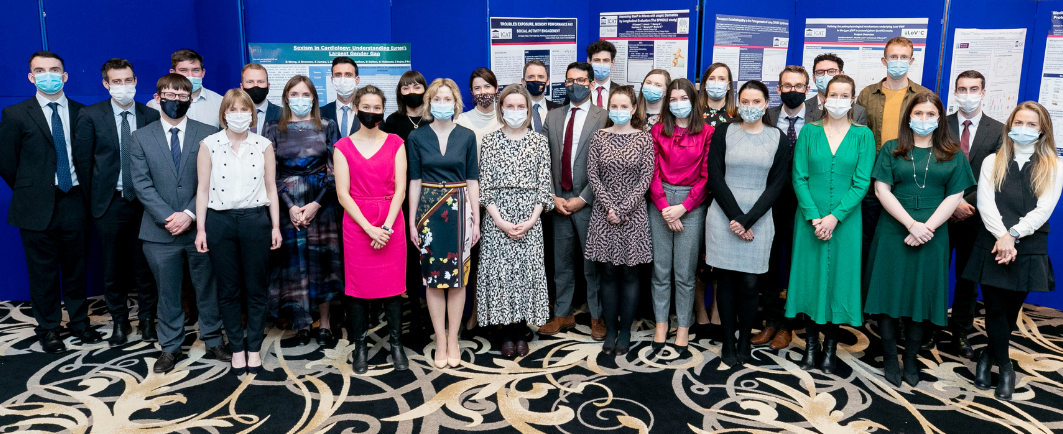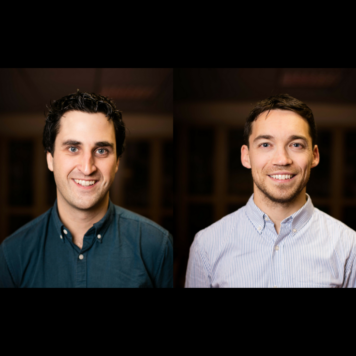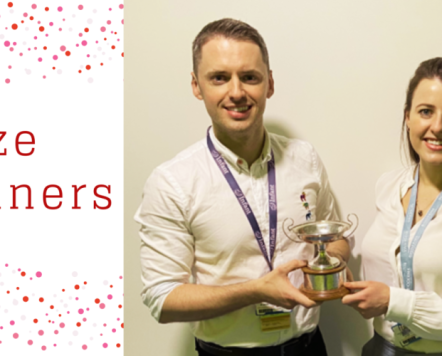ICAT Induction Event 2021
August 11, 2021
ICAT Retreat 2021
January 11, 2022ICAT Alumni Update – David Mongan

David joined ICAT as one of our first cohort in 2017; he spent his pre-PhD ICAT year 1 at Queen’s University Belfast and then moved to the Royal College of Surgeons in Ireland in Dublin.
David recently completed his PhD ‘An inflammatory biomarker study of psychosis: a longitudinal study in an at risk population’ under the guidance of his supervisors Professor David Cotter and Professor Mary Cannon in RCSI and successfully passed his viva examination in August.
As one of our first ICAT alumni we were keen to hear David’s plans for the future and his advice for potential applicants!
Why did you decide to do a PhD?
I am a Psychiatry trainee on the Northern Ireland Medical and Dental Training Agency General Adult Psychiatry training programme. During my core training in Psychiatry (similar to basic training in the Republic of Ireland) I was fortunate to have a joint academic post. This involved 50% clinical time where I was based in a psychosis prevention service, and 50% time for teaching and research based in Queen’s University Belfast. My supervisor at the time (Prof Ciaran Mulholland), and the clinical and research team, helped ignite my passion for research.
I quickly found that I was very interested in both early detection and intervention in psychosis, and in how research can inform clinical and public health strategies in this field. This spurred me on to pursue PhD opportunities. I heard about the ICAT Programme and jumped at the chance to work with world-leading researchers. I was also excited to expand my skills with a view to pursuing a career as a clinical academic.
What was your experience moving from a clinical role to research?
 I did have some experience of integrating a research component with a clinical role in my joint academic post, but moving to more-or-less full-time research was still a bit of a challenge. My project was mostly data-based, so I had to upskill quite rapidly in terms of statistical analyses. More generally, in the clinical setting things move with a very fast pace, but in research this isn’t always the case (often for very good reasons, e.g. drafting and submitting ethics approvals or inter-institutional collaborative agreements).
I did have some experience of integrating a research component with a clinical role in my joint academic post, but moving to more-or-less full-time research was still a bit of a challenge. My project was mostly data-based, so I had to upskill quite rapidly in terms of statistical analyses. More generally, in the clinical setting things move with a very fast pace, but in research this isn’t always the case (often for very good reasons, e.g. drafting and submitting ethics approvals or inter-institutional collaborative agreements).
Having said that, the advantage of the ICAT Programme is that you have dedicated time during the first year to lay the groundwork and prepare your PhD proposal with lots of useful feedback from peers and mentors who’ve been through it all before. So I felt I could hit the ground running once my PhD started in earnest.
How did you find your PhD years?

Excellent! I chose to move away from my home institution and undertook my PhD in the Royal College of Surgeons in Ireland. My supervisors Prof David Cotter and Prof Mary Cannon, and the rest of the research team, made me feel so welcome and supported me every step of the way. I’ve made lasting friendships and collaborations and can say I whole-heartedly enjoyed my PhD experience (despite Covid!).
I appreciated the opportunity to expand my horizons, build collaborative networks and friendships, and gain exposure to different clinical and research systems. It was incredibly valuable working with colleagues in diverse fields such as laboratory scientists and statisticians who can provide different viewpoints and skillsets.
While I thoroughly enjoy my clinical work (and continued gaining some clinical experience during my PhD) I found it worthwhile taking a step back from the clinical ‘coal face’. It helped me become more aware that our clinical work takes place within a larger, developing system of knowledge. Most of our clinical decisions emanate from research of some form or another, and research drives innovation so it’s important to challenge received knowledge and the status quo.
Do you have any advice for people considering applying for a PhD?
I would say if you have any inkling that you might like to get involved in research – then go for it! There may be local opportunities for getting involved in projects in your own clinical setting. Don’t be afraid to ask around or send an email to research-active individuals or your local research office – I’ve found the research community to be welcoming and collaborative, and people are always happy to discuss their work with someone who shows an interest.
 If you do find you enjoy research, and it suits you from a personal perspective, then definitely consider a PhD. The advantage of the ICAT Programme is that it helps to mitigate some of the traditional challenges to this (such as integrating your PhD within your clinical training programme) and helps to navigate institutional and other perceived boundaries. Bespoke mentoring is important, as is identifying a supervisory team whose research you are interested in and who you can get on with. This, in addition to the essential support and advice of peers (both formal and informal), really helped me through and is where ICAT shines.
If you do find you enjoy research, and it suits you from a personal perspective, then definitely consider a PhD. The advantage of the ICAT Programme is that it helps to mitigate some of the traditional challenges to this (such as integrating your PhD within your clinical training programme) and helps to navigate institutional and other perceived boundaries. Bespoke mentoring is important, as is identifying a supervisory team whose research you are interested in and who you can get on with. This, in addition to the essential support and advice of peers (both formal and informal), really helped me through and is where ICAT shines.
Finally consider doing some research training courses prior to your PhD. During my first ICAT year I completed a basic medical statistics course which was very helpful. Data analysis skills are truly transferable because all research projects (whatever the underlying question) will involve some form of quantitative or qualitative analysis.
What are you up to now?
During my final PhD year I was successful in securing an Academic Clinical Lecturer (ACL) post at Queen’s University Belfast. This is a 50% clinical 50% research role. Towards the end of my PhD there were still many projects in different stages of completion, so it’s great to have the opportunity to continue my research work as I finish my clinical training. In the longer term, I plan to apply for fellowships (for example with the Wellcome Trust or Health Research Board) to continue my research in the field of early intervention and prevention of mental illnesses, with the ultimate aspiration of becoming an independent clinical academic.
A snapshot of David’s PhD research:
Proteomic prediction model for psychosis:
David’s research identified patterns of proteins in early blood samples taken from people at clinical high risk of developing psychosis later in life. The 10 most predictive proteins correctly identified those who would go on to develop a psychotic disorder and funding was awarded to Professor Cotter at RCSI under the Wellcome Psychosis Flagship to further develop and validate this test. The ultimate goal is to develop a commercially-available test, that can be used to predict who is at risk of developing a psychotic disorder and subsequently improve patient care by treating people earlier.
David designed an animated video that explains this predictive model for a general audience, which you can view below. The research was also published in JAMA Psychiatry.
Mongan D, Föcking M, Healy C, et al. Development of Proteomic Prediction Models for Transition to Psychotic Disorder in the Clinical High-Risk State and Psychotic Experiences in Adolescence. JAMA Psychiatry. 2021;78(1):77–90. doi:10.1001/jamapsychiatry.2020.2459
Fatty acid patterns and the development of mental disorders:
David also investigated the role of polyunsaturated fatty acids in the development of mental disorders in young people. Measuring these polyunsaturated fatty acids in blood samples showed that certain patterns were associated with the development of depressive disorder, psychotic disorder and generalised anxiety disorder by the age of 24. The findings were published in Translational Psychiatry and David published a short video to describe this research, which you can view below.
Mongan, D., Healy, C., Jones, H.J. et al. Plasma polyunsaturated fatty acids and mental disorders in adolescence and early adulthood: cross-sectional and longitudinal associations in a general population cohort. Transl Psychiatry 11, 321 (2021). https://doi.org/10.1038/s41398-021-01425-4




